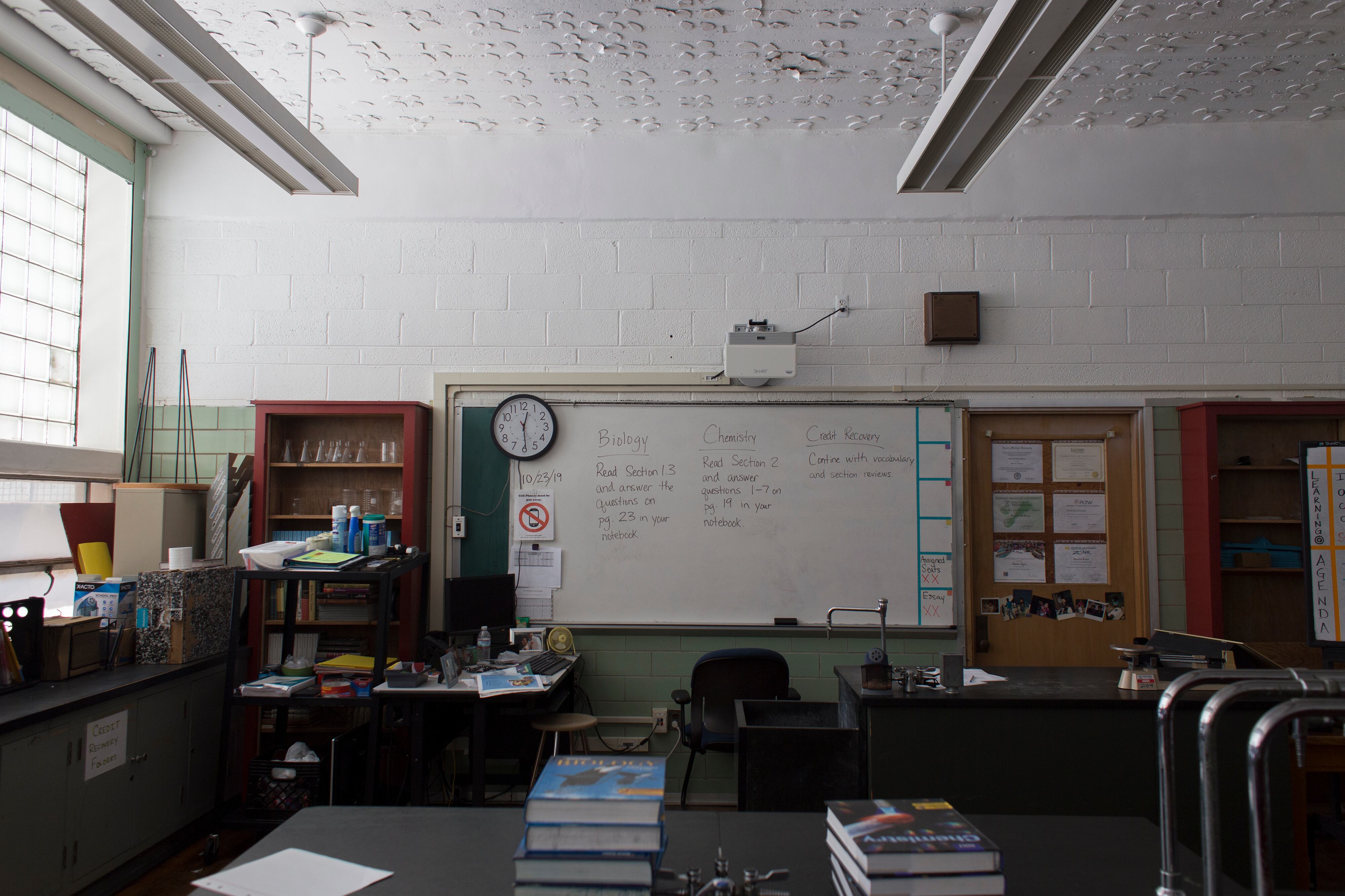The Detroit school board unanimously approved the district’s ambitious $700 million facility plan, setting up major renovations and rebuilds for school buildings across the city over the next half a decade.
The district will spend $281 million to rebuild five schools, $296 million to renovate buildings, and $128 million to reopen previously closed school buildings, expand pre-K, build additions onto existing schools, and demolish or sell some vacant buildings.
The major building changes would include:
- Constructing new buildings on the current sites of Cody High School and Paul Robeson/Malcolm X Academy.
- Reopening Paul Vetal Elementary, which closed in 2011, with an expanded pre-kindergarten program.
- Building new additions at Charles Wright Academy, Communication and Media Arts High School, and John R. King Academy.
- Closing Ann Arbor Trail Magnet Elementary-Middle School and Thurgood Marshall Elementary School by phasing out enrollment over the next several years.
- Demolishing or selling active and closed school buildings, including Post Middle School, and Biddle and Larned elementary schools.
The district’s decision also lifted the district’s moratorium on selling vacant properties. An earlier board decision halted any discussions related to former school properties and buildings until the board approved the facility plan.
The approved plan includes four significant changes to the original proposal presented in February, among them a reversal of a decision to phase out Sampson-Webber Leadership Academy, a K-8 school northwest of downtown. The changes come partly in response to community feedback.
Seven community meetings were held online and in person for community members to offer feedback to the district, along with meetings with faculty and parents and individual schools subject to phase-outs or major rebuilds.
“We’ve tried to do our due diligence and do our research before coming into this space to make a vote that we’re comfortable with,” said Angelique Peterson-Mayberry, president of the school board. “What you see today is a result of all of that work.”
The decision met some opposition from parents who want to see the district spend more of its federal COVID relief money on things other than construction projects.
While the district is spending $700 million of its $1.2 billion of COVID relief funding on building improvements, Superintendent Nikolai Vitti said the district has used the COVID money to increase funding for mental health support, the hiring of school nurses, and hazard pay for employees.
One parent and teacher in the district said the relief funds should go toward hiring more teachers and reducing class sizes.
“I really was hoping instead of just seeing the facility plan and the new blueprint and updated blueprint that we would really get an overhaul of staff within our buildings to really supplement the learning through the building,” the parent said.
Another parent, Aliya Moore, suggested that the district continue to “think outside the box” as it plans out the remaining spending of the district’s COVID relief funding.
“We still have money that has to be designated to the right spots,” Moore said.
“We can have air conditioning, we can have better buildings,” Moore added, “but the quality of their education when they get there is top.”
Under the plan, construction and renovations will begin by fall 2022, and wrap up by fall 2025.






